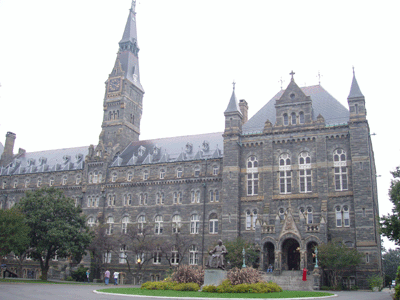 SIS International Market Research – Graduate schools throughout the United States are realizing unusually high application rates, while the economy plunges further into recession. This development has resulted from the countercyclical rise in demand for college degrees, as scores of workers head to “plan B” by applying for graduate degrees. Eventually, these graduates hope to come out better positioned in the workforce after the recession concludes.
SIS International Market Research – Graduate schools throughout the United States are realizing unusually high application rates, while the economy plunges further into recession. This development has resulted from the countercyclical rise in demand for college degrees, as scores of workers head to “plan B” by applying for graduate degrees. Eventually, these graduates hope to come out better positioned in the workforce after the recession concludes.
Research & Intelligence:
SIS International reached out to one of the nation’s most prestigious business schools, Georgetown University’s McDonough School of Business. According to an Assistant Dean in the MBA program, “While not a complete picture at this point because we are only part-way through the admissions cycle, we have seen an increase in domestic applications and a decrease in international applications. From the benchmarking we have done with peer schools, this appears to be the general trend.”
Asked for the cause of this unusual rise in applications, “To me, this makes sense as the pattern reflects a global economic downturn. However, we will know the full picture only after all application deadlines have passed. Given the current global economic downturn, it will continue to be an interesting year as we do not know what the actual yield of admitted candidates will be until the new students matriculate.” Other causes could be the McDonough School of Business’ advertising.
One informal interview with a tenured professor involved with the applications process of Georgetown University’s McDonough School of Business indicated that the number of applications has grown dramatically over the past year, likely in the double digits. Another representative at the MBNA Career Center provided a similar range of annual increases in MBA applications.
Nearby George Washington University reported in its campus media an increase of 7% in master’s degree applications and a 3% rise in doctoral applications.
Kaplan Test Centers has reported to the media that there has been a 45% increase in interest for their business, law and graduate school preparation programs.
Further evidence of unusual increases in application rates has emerged. The entrance exam for graduate schools worldwide, “GMAT,” has risen 5.8% in the US, and 11.6% worldwide.
Other universities have reported upticks in their graduate
Princeton: 10%
Yale Arts & Sciences: 10%
University of Pennsylvania: 7%
University of Toronto: 9%
Yale is not increasing its enrollment this year despite rising demand, according to the Graduate Dean at Yale.
In general the MBA programs in US graduate schools are the hardest hit, with layoffs in the private sector contributing to high application numbers.
Climate & Challenges:
Many institutions of higher education are making strategic moves given this countercyclical rise.
Yet challenges still abound. New students may think they have moved to greener pastures before they encounter major funding issues. Due to the credit crunch, students counting on CitiAssist and Sallie Mae for financing must have a consigner, potentially a problem for those considering higher education during the recession. While some universities are finding new alternatives to traditional financing or are already the financial intermediaries between the government and student, students may find it more difficult to secure the financing and student loans for graduate degrees.
Eric Garland, a futurist and strategist, has written on the topic as well. He indicates, “What is not considered by writers on the topic is that young people are taking on unprecedented amounts of debt at the recommendation of authority figures in their lives: parents, guidance counselors, schools, putative employers. The assumption has been, ‘Well, you must all know what you’re doing. $125,000 is beyond my comprehension. Where do I sign?’”
Garland makes a prediction, “If we’re in the economic doldrums for two to five years, people will figure out very quickly that university debt does not equal jobs. They may save the hassle and go straight into construction or restaurant work. Job training and recruitment will need major reformatting.”


